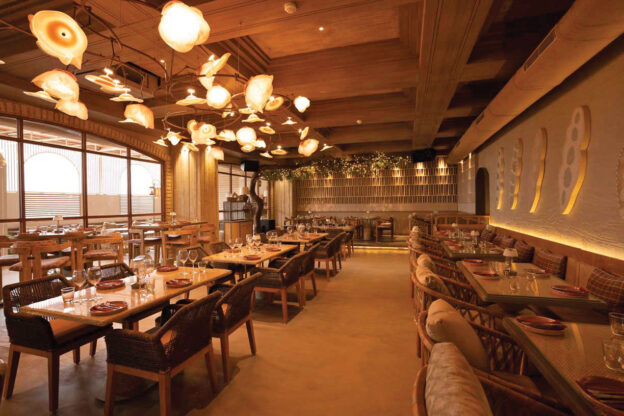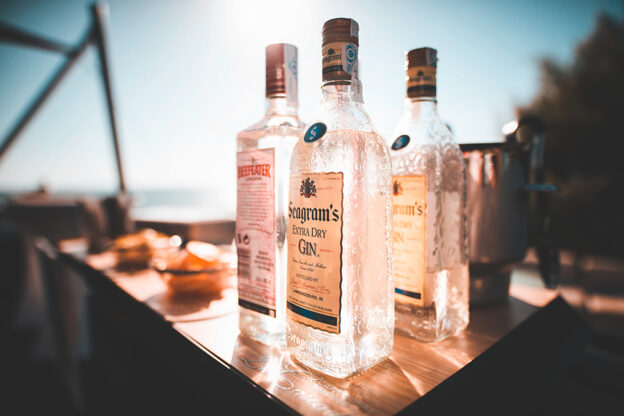When William Shakespeare asked, “What’s in a name?” he surely wasn’t referring to the new Andheri, Mumbai eatery aptly named Juliette Ristorante. Juliette, with a fantastically curated inspired European menu with a modern twist, is bringing us all kinds of European summer vibes and feels as they open their doors.
Located in Andheri, right next to Yazu, this modern European dining is the ideal setting for you to engage in sweet encounters that transform into a one-of-a-kind gastronomical adventure as you savour and enjoy some redesigned Western and Mediterranean delights sealed with artistic culinary skills. Juliette offers the same hospitality experience as Yazu and is owned by the hospitality veterans that own the upscale progressive dining Pan Asian Supper Club. Created to provide a consumer with the ideal all-around experience as a centre for all occasions. Laying the foundation with the same seeds, Enso Hospitality’s partners Gurmeet Arora, Atul Chopra, and Ranbir Nagpal have launched Juliette and are ready to take on the European dining segment by a storm.
As soon as you step in, the soothing monochromatic theme will sweep you off your feet as they recreate an authentic upscale European vibe. A 4000 sq. ft. space with a premium dining area and a vivacious alfresco seating style with clean lines and subdued nude shades synonymous with the artist Sumessh Menon. The nature-inspired elements like the larger-than-life tree installation in the dining section and unique art wall features inspired by pea pods are sure to conjure up images of a pleasant day spent in the European countryside.
“The essence of Juliette as a space is that it has a European charm about it, creating an inviting ambiance for patrons but the key always has to be fresh and well-thought-out curated menu and technique, which Juliette displays,” said Gurmeet Arora, co-founder.
Resonating with the aura of European delis with an indoor and outdoor, although sheltered section, Juliette brings you the taste of modern Europe that will leave you on your balcony saying “Juliette, Juliette, wherefore art thou Juliette!”. The all-day European restaurant serves the fluffiest pancakes, but if a sweet breakfast is not your jam, then give your tastebuds a delightful treat of Croque Monsieur inspired by the French cafes. Pair your coffees with fresh Viennoiseries for breakfast and give your tastebuds a taste of sweet heaven. Indulge in the Smoked Seasonal Vegetables with Stracciatella Cheese and savour the flavours of Italy. With a plethora of dishes to choose from, the charming appetizers made with in-house rub marinated grilled prawns served with millet salad, a flavourful whole-grain salad loaded with fresh veggies, feta, and herbs; the foodie in you will surely be satiated. Relish in the main courses with the in-house special Stroganoff, a root vegetable served with orzo pilaf, or satisfy the meat-lover in you with the lip-smacking Beouf short ribs served with mashed potatoes. Performing magic on your palate, the aromatic flavours of the spiced grilled Moroccan chicken with toumb splashed with cinnamon and ginger will leave you craving for more. Carrying the essence of Europe, Juliette prepares the most authentic pizzas in town using fine sourdough. Keeping the traditional spirits at heart, the portions of pasta are hand-crafted with care, resulting in some delectable Fettuccini Bolognese, and Classic Lamb Lasagne, which are sure to tease your palette and bring back memories of an Italian ristorante or a French bodega. Hitting those sweet spots, the must-try Grand Marnier souffle with Elderflower ice cream and the chef’s favourite Baked Alaska is something you can’t miss out on!
“Juliette is personified as a love between a beautiful looking place with warm hospitality and lip-smacking food made using modern ingredients, classic techniques, and amazing cocktails. It has a world-class vibe with heart-warming hospitality,” said Ranbir Nagpal, co-founder.
As a culinary journey of good food and fine cocktails, Juliette Ristorante promises to serve you the most delicious cocktails. You can start with a Smoked Hazelnut Martini, a keen twist on the standard espresso martini with a touch of sweetness from hazelnut and caramel, and a rim coated with hazelnut and peanut. If a glass of wine is your jam, Juliette has you covered with the Elderflower Hugo, a pleasant cocktail served with fresh berries, pomegranate, wine, and elderflower syrup. If you are the classic kind, you can do a Barrel-Aged Negroni, whiskey aged in a barrel, and later served with a presentation tableside. And if you like a good DIY, Passion is your poison of choice. All you must do is select your base spirit blended with fresh passion fruit puree and lemon juice, served in an old-fashioned glass and a short glass of ice topped with sparkling wine. And finally, the namesake Juliette – an encapsulating serving of the place’s obsession with fantastic cocktails, a suave drink combining elements of bourbon, rose shrub, lemon juice, and mint – garnished with fizzy apple juice served with a crushed rose on liquid nitrogen in all its fanfare – a must-have! “Juliette is a feeling of being chic and modern yet traditional but classy. Gives you an overall dining experience of international standards with a classy touch. Hospitality personified, the goal is to connect with the lovers of fine food and exquisite cocktails,” says Atul Chopra, co-founder.



